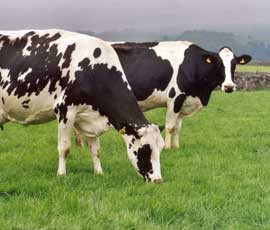Reduce greenhouse emissions, farmers urged

Farmers will be asked to reduce greenhouse gas emissions by almost 11% under plans devised by industry leaders.
The Greenhouse Gas Action Plan – A Framework for Action will set out how the industry can reduce emissions by the equivalent of 3m tonnes of CO2 by 2020. It will be unveiled on Monday (4 April).
Farm leaders are keen that agriculture is seen to be playing its part in combating climate change. Farming is directly responsible for about 9% of all UK greenhouse gas emissions – including 41% of the country’s methane emissions.
Industry organisations believe it is vital that farmers commit to a voluntary reduction in emissions rather than face regulation. But they insist the action plan should not be seen as yet another voluntary initiative.
The action plan was devised by a cross-section of industry bodies. Partners include the NFU, the Country Land & Business Association, Agricultural Industries Confederation, and the Agriculture and Horticulture Development Board.
NFU climate change adviser, Ceris Jones, said greenhouse gas emissions were an inevitable consequence of food production. But reducing them could bring business benefits as well as helping to mitigate climate change.
Many farmers were already reducing emissions, added Dr Jones. They included initiatives such as the ELEX Better Returns programme, which encourage beef and sheep producers to adopt cost-saving environmental measures.
“It is one of a range of initiatives helping farming produce more while impacting less,” said Dr Jones. “The action plan will bring them together under the same umbrella, documenting the changes farmers are making and reporting progress.”
The plan comes days after research by scientists at Reading and Aberystwyth universities found that changing livestock diets could reduce greenhouse gas emissions from cattle and sheep.
The research was funded by DEFRA. Farm minister Jim Paice said: “We are committed to supporting the farming industry as it faces the challenge of reducing its greenhouse gas emissions.”
In a short-term trial, increasing the proportion of maize silage from 25% to 75% was found to reduce methane emissions by 6% per kilo of milk produced. High-sugar grasses reduced methane emissions by 20% for every kilo of weight gain.
In the longer term, scientists said the benefits gained by changing animals’ diets would need to be considered against other environmental impacts, as well as how practical or costly they were for farmers to implement.
